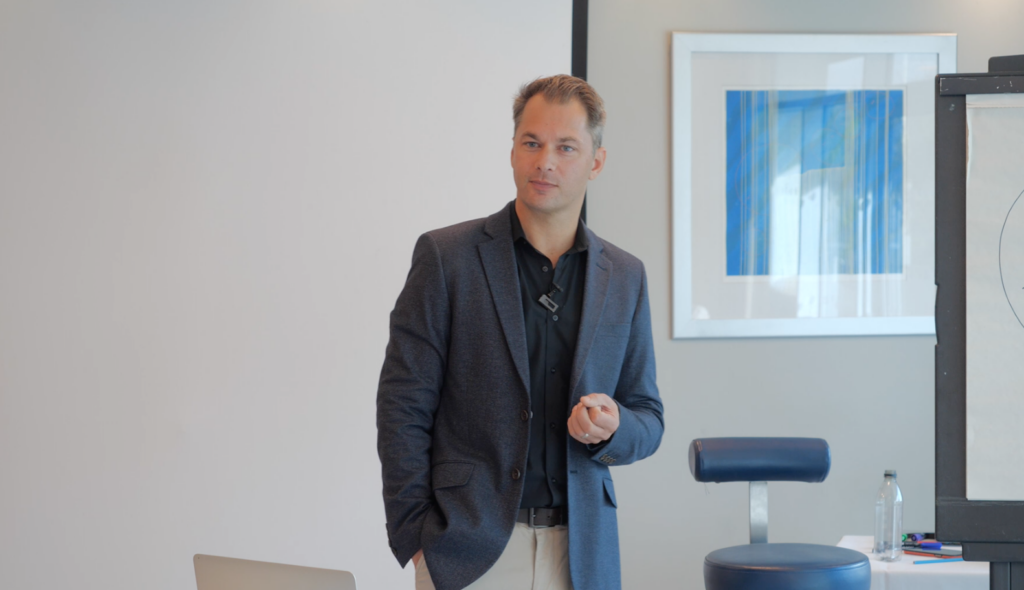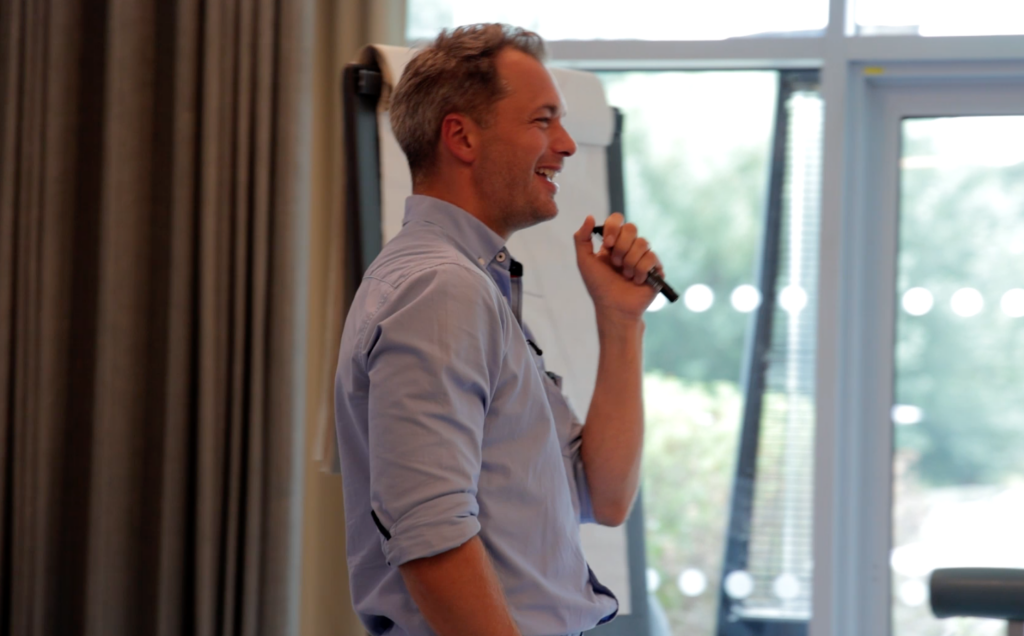No one better to answer this than a Psychotherapist and Life Coach.
Chris Finn trained as a Cognitive Behavioural Therapist as was a Senior Lecturer in CBT on a professional Masters programme training and supervising the trainee CBT therapists.
Chris is also a certified Transformative Coach, fully trained mindfulness teacher and calls himself a Mindset Coach.
Chris says that when he worked in the NHS as a Wellbeing Lead that many of his colleagues would look down on Life Coaches. Mainly because of the lack of training that most of them have. Life Coaching isn’t a particularly well regulated industry, which means that anyone can call themselves a life coach.
TRAINING, SUPERVISION, AND ACCREDITATION
Even the qualified life coaches have only done a six-month training programme. Whereas CBT therapists like Chris had to train for seven years, and conduct hundreds of hours of therapy and supervision before they are signed off.
Most life coaches don’t have supervision and as a Supervision Chris says that “supervision is where most therapists learn to get good”.
“Whenever I’ve had supervision, I’ve found it immensely helpful, although it can often be confronting because you’re also exposing yourself to criticism from someone more experienced that you. But that’s how you grow, and it’s how you get the best out of yourself for your clients.”
Life coaches who don’t have supervision are missing a trick.
DIFFERENT FOCUSES?
“It’s also a matter on what the client is focused on”, says Chris.
Most people go to therapy to work on their wellbeing or because they are struggling to function in a particular area of life.
Therapists are great at helping give you tools and techniques to function better and improve your wellbeing.
People tend to go to a life coach when they want to focus on a particular goal, or
There’s also a lot of disagreement between therapists and life coaches to what the difference is between therapy and life coaching says Chris. “If you ask twenty therapists and life coaches what the difference is, you’re get twenty different answers”, says Chris.
“I think the reason for the different answers is two reasons; one, because different therapists work differently depending on their training in CBT, ACT, CFT, CBT, etc”. And most coaches aren’t trained in therapeutic modalities.
And two, because most therapists don’t really know what life coaches do, and most life coaches don’t really know what therapists do. “Their answers are often misinformed” says Chris.
“When I was a therapist, before I’d experienced coaching, I assumed that coaching was all about motivating someone. I just naively thought that coaching lacked any real depth and I had a pretty negative view of life coaches”.
Coaching isn’t just about motivating someone. It’s about getting to the root cause of what’s holding them back, and helping them break free from it so they can be the best version of themselves.
“I know now that coaching can often get to the root of a problem, far quicker that therapy in most cases”.
Some people will say that therapy is about dealing with the past, and that coaching is about the future. “But that’s not strictly true”. says Chris.
“Therapists often try to set goals for the future, and coaches should always consider what’s holding their client’s back”.
One of the cross overs with therapy and coaching is that both focus on your wellbeing, and overall functioning. Expect instead in coaching we don’t tend to say ‘high functioning’, we say ‘high performance’.
HAPPINESS
One of the things that struck me when working as a therapist was the wellbeing of the therapists I worked with. I remember thinking that if the techniques we taught were that good, then we should be some of the happiest people in the world! But we weren’t.
That’s when it clicked for me. I realised that therapy would often get people up to a certain level of wellbeing, but it wouldn’t make them truly happy. Because therapy doesn’t really study happiness, it helps get people functioning again.
Coaching will help people tap into their true potential and what is possible for them, so that people can live the lives they want to live, without their pasts limiting them, or any negative thoughts getting in the way.
Coaching in a way, has a higher aim. Coaching very much is about thriving. Helping you be really happy and love your life.
That’s probably why I love my job so much, because the things I’ve learnt have helped me go from feeling anxious, depressed and unfulfilled to really having the best life.
DEEP COACHING
“For me I do often wonder if and when I would recommended someone to therapy instead of coaching. But to be honest, so far everyone who has come to me has benefitted from my approach. My guess is that because I’m still a therapist at heart, it’s my background, plus I’ve got quite a ‘coachy’ side to me, people benefit from the blend”.
I do think that one of the benefits of coaching, or certainly the way I work in my practice, is that I’m much more straight-talking than a therapist might be. My clients frequently report how much quicker it is to get results working with me over a therapist because we can cut to the chase quite quickly and get to the root cause of any struggles and challenges.
As a therapy-informed coach, I don’t actually teach people tools or techniques, although often that’s what they come looking for. Instead, I help you understand how your mind and psychology really work. The impact of this is that is wakes you up to the root cause of your problems, and it also then shows you how not to take your negative thoughts and feeling so seriously. Clients are then able to drop negative habits and patterns very quickly and move on from their perceived limitations.
A client recently said that working with me was like getting a spring clean! Except that instead of cleaning out all the junk from your house, your cleaning out all the unhelpful thinking in your mind. Working with a therapy-informed coach means that you get an expert in psychology who will make everything practical for you and help you apply life-changing insights in your life for real and lasting change.
Finally, I think we focus a lot more on mindset in my work. Essentially clients learn that we don’t see the world as it is – we see it through the lens of our beliefs. If you beliefs are negative, we see a negative life, and people.

